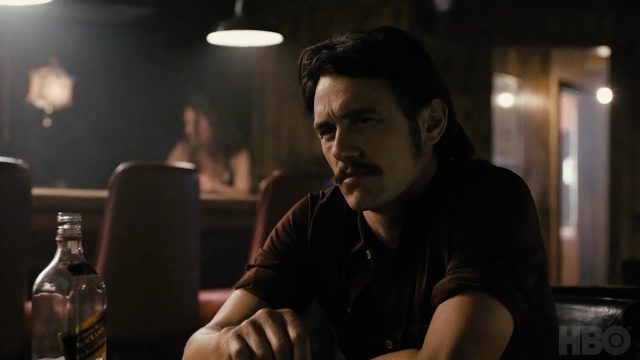The Deuce, ep. 1 “Pilot”
Written by David Simon & George Pelecanos. Directed by Michelle MacLaren.
Talking about the first episode of a David Simon show is a risky endeavor because of how slowly and methodically and cumulatively he tells his stories, and his new show The Deuce, with its pilot episode now available on HBO Go, seems to be no exception. Sold and advertised as a behind-the-scenes look at the birth of the porn industry, the first episode doesn’t even involve or mention porn (unless one has an unusual classification of the 1935 movie version of A Tale of Two Cities).
So what is The Deuce? Well, from what my eyes can see, it appears to be the story of tired, burnt out people trying to make a living on the margins of society in 1971 New York. James Franco plays Vincent Martino, a surprisingly average joe for a Franco character, a self-described “guinea from Brooklyn” working two bartending jobs to support his failing marriage (to guest star Zoe Kazan). Vincent seems like a decent enough guy, he works hard, and he even looks after the safety of his lowlife brother Frankie (also played by James Franco).
But this being a Simon (and Pelecanos) joint, it’s never just the story of one person, it’s a larger story about different individuals and communities that occasionally intersect and overlap. Maggie Gyllenhaal is the other top-billed star, playing a Times Square streetwalker who goes against convention by operating without a pimp, and she doesn’t have any scenes in the 90ish minute pilot with Franco at all.
Other threads involve a philosophically-minded and socially progressive college student (Margarita Levieva), a girl from Minnesota (Emily Meade) who is fresh off the bus but not as naïve as she seems, and a young prostitute (Dominique Fishback) dealing with johns both gentle and rough.
TV director extraordinaire Michelle MacLaren keeps the story moving along well, in the measured, sober pace of previous Simon projects like The Wire or Treme. The direction and style is documentarian, very low-key, a total 180 from the hyperactive music video flashiness of HBO’s all-too-recent 1970s NYC period piece Vinyl. This has the effect of making the prostitution and the generally horniness of the characters seem as mundane and transactional as paying your subway fare. Obviously this is deliberate, and probably for the best, as the contrary approach might run the risk of romanticizing and glamorizing the lives of these streetwalkers who are meant to attract and titillate but who ultimately live lives of constant anxiety and abuse. Beyond that, though, MacLaren finds ways to quietly make decisive dramatic choices with the look of the episode. In other rather effective scene, Gyllenhaal’s character Candy visits her mother and sits down on the bed in her childhood room. The walls are covered in posters and photos of Marilyn Monroe and Elvis Presley, glamor personified, staring down at her like cruel reminders of what her life isn’t. MacLaren very wisely frames Gyllenhaal to look small and insignificant while the posters seem huge. Gyllenhaal’s back is turned to the camera, and she faces a vanity mirror, putting her world-weary visage alongside the grinning faces of Marilyn and Elvis.
Whether or not The Deuce will remain compelling for the entirety of its run is of course an uncertainty. And if it wishes to inspire the same kind of devotion that The Wire did, it will need more of the kind of humor and tonal dynamism that an early scene where a pimp compares himself to President Nixon demonstrated. Still, there’s a whole lot about The Deuce to recommend, and a lot of pedigree to recommend further.


